




Barbara Hunter, Stage IV Melanoma Survivor
Angela Evatt, Stage III Melanoma Survivor
01 02 03
Elizabeth Rounseville, Stage IV Melanoma Survivor

Hello friends,
A person is considered a cancer survivor from the time of diagnosis through the rest of their life
This one simple word--survivor--acknowledges the life-changing journey that cancer is
AIM at Melanoma, along with cancer centers and various organizations across the nation, recognize June as National Cancer Survivor Month. This month is dedicated to celebrating and honoring the more than 18 million cancer survivors in the United States while also recognizing ongoing efforts to improve the lives of survivors and their caregivers.
In this special edition newsletter, we highlight the compelling journeys of three melanoma survivors We hope you enjoy reading their stories And remember: You can post your own survivor story on the AIM website These survivor story pages are among the most visited on our website
This newsletter also describes several opportunities to volunteer in ways that will help support AIM at Melanoma’s mission, spread sun safety education, and improve the lives of other survivors
We hope you’ll join us
Let’s unite to celebrate and support everyone impacted by melanoma
Ann Garst Taylor Director of Community Engagement AIM at Melanoma Foundation

When Barbara Hunter found out her melanoma had returned as Stage IV and was in her liver, she remembers saying something to the nurse about the speed of the recurrence That news came in December 2020, less than a year after her dermatologist took a lump off of her head and determined it was melanoma
“Yes, melanoma is fast, but we’re fast too,” the nurse said in response That made Barbara feel hopeful – a feeling that grew when her doctor told her about a new clinical trial for the immunotherapy treatment that became known as Opdualag
“I said ‘Great. Sign me up,’” said Barbara, now 77 “I had no hesitations ”
She credits that confidence to the trust she had in her doctor
“I knew that if this was what he thought would be a good thing for me, it was what I wanted,” she said

She began the treatment at Johns Hopkins Hospital in February 2021 and did five rounds. The tumor in her liver shrunk considerably and is now considered stable She still visits her doctor every three months for scans.
Throughout the treatments and the multiple hospital visits for severe side effects –including painful skin rashes, acute kidney failure and adrenal insufficiency – Barbara said her clinical trial nurse, Alice, was always there for her.
“Having a trial nurse was the very best thing about the trial,” Barbara said. “She’s just been wonderful and was really there for me and my husband ”
Barbara continued to work as a counselor throughout her treatment and finally retired at the start of 2023. She jokes that she’s still trying to find ways to fill her new-found time, but she enjoys reading, knitting and time with friends

Since her cancer diagnosis, she said she’s even more focused on finding ways, both big and small, to help others. And she’s committed to noticing all the reasons she has to be grateful
“Gratitude is always an important thing for everyone and it really does help you psychologically,” she said
Now, even when she goes in for the brain MRIs she dreads, Barbara takes note of how kind the staff and nurses are to her. That is always something to be grateful for, she said.
That outlook has rubbed off on her children, too Around Thanksgiving, one of Barbara’s sons texted her that he had been telling his own friends and family that he was most thankful for immunotherapy because it gave him more time with his mom.
Barbara tears up when she thinks about that sentiment and the meaning of “more time” with her husband, sons and three grandchildren.
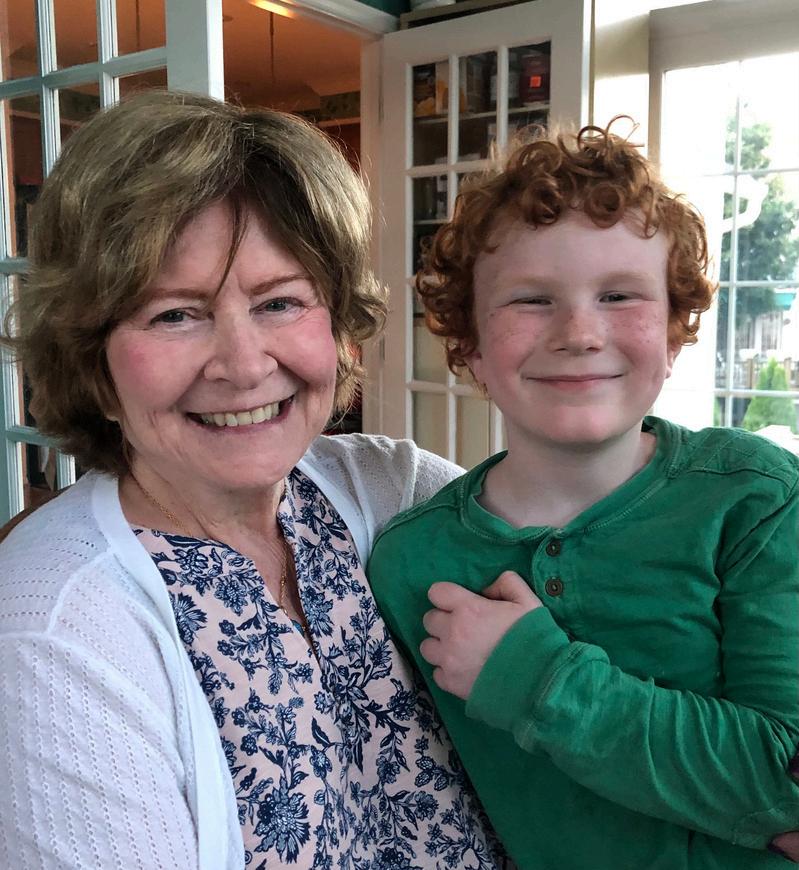
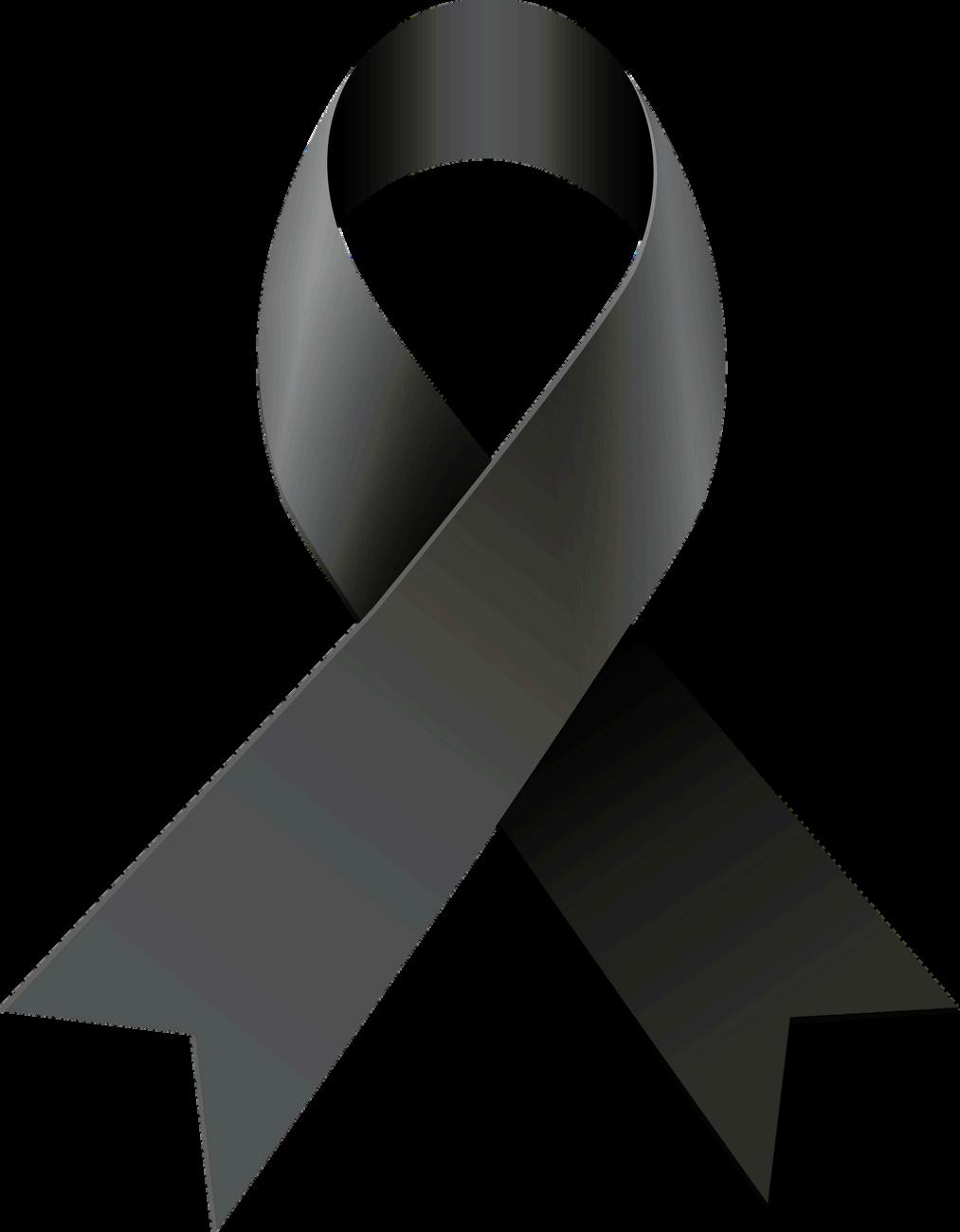
"Gratitude is always an important thing for everyone and it really does help you psychologically"
“I feel like I’m on borrowed time,” she said “I realize I’m so lucky to be here.”
She also feels proud to have been a part of a clinical trial that helped doctors understand a new drug.
As a child, Barbara was a “polio pioneer” –meaning she was part of the first national tests of the polio vaccine in 1954.
“My generation has seen so much progress in medicine, and I know that you’ve got to have people to try it or it’s not going to go anywhere,” she said
As a member of a few different melanoma and immunotherapy support groups on Facebook, Barbara often sees posts from people taking Opdualag.
“I have a certain amount of pride that I was in that trial,” she said. “Now I’ve befriended these people who are taking it and it’s working for a lot of them I’m happy that I could be part of that.”
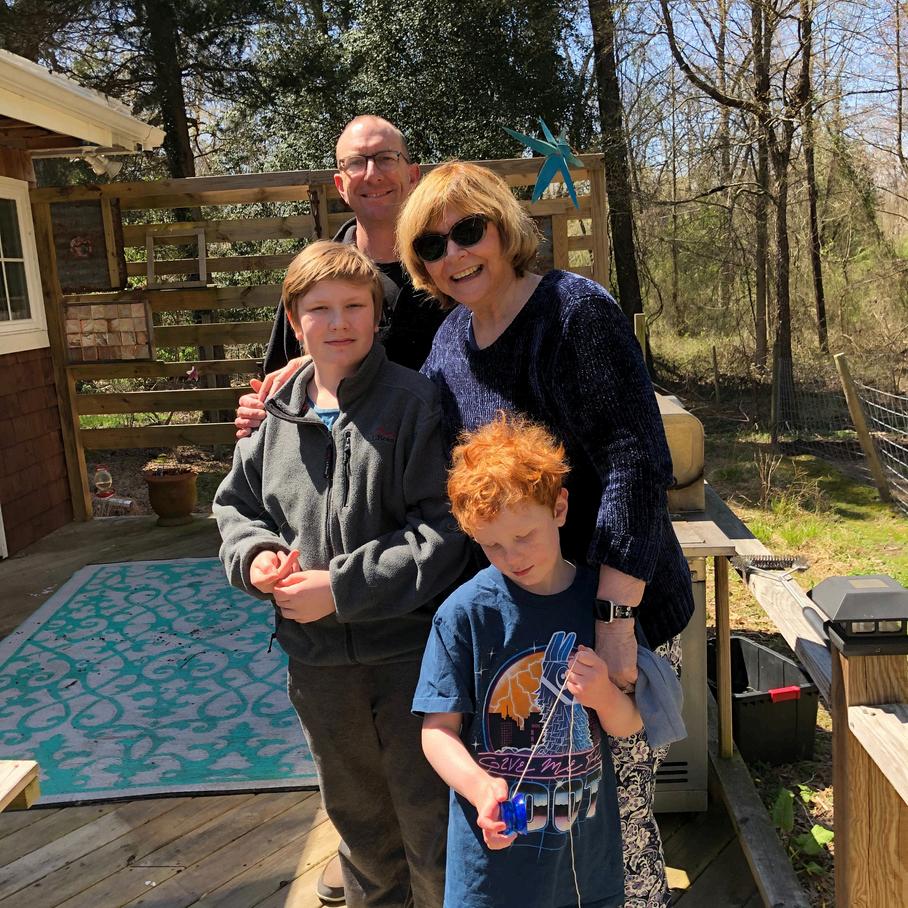

AIM’s Peer Connect mentoring program is a testament to the spirit of solidarity that thrives among those who have faced melanoma head-on.
This initiative fosters a thriving community where newly diagnosed patients are matched with survivors, gaining unique support and encouragement that only a shared experience can offer.
Give the Gift of Comfort & Understanding
Connect with us to learn more about the rewarding role of a Peer Connect mentor.
 STORY BY MARA KLECKER
STORY BY MARA KLECKER

Angela Evatt grew up in Louisiana, spending her summers outside in the sun, often by the pool. At the time, she gave little thought to the sunburns she received from days spent outside or the risks of using tanning beds, which she did as a young adult
“My story really begins with my risk as a fair-skinned redhead,” Evatt said. “I never really got skin checks – no one told me about my risk ”
By the end of 2019, a large mole on Angela’s back grew painful and began to bleed. Evatt was visiting family in Louisiana for the holidays, but her husband pushed her not to wait to see a doctor

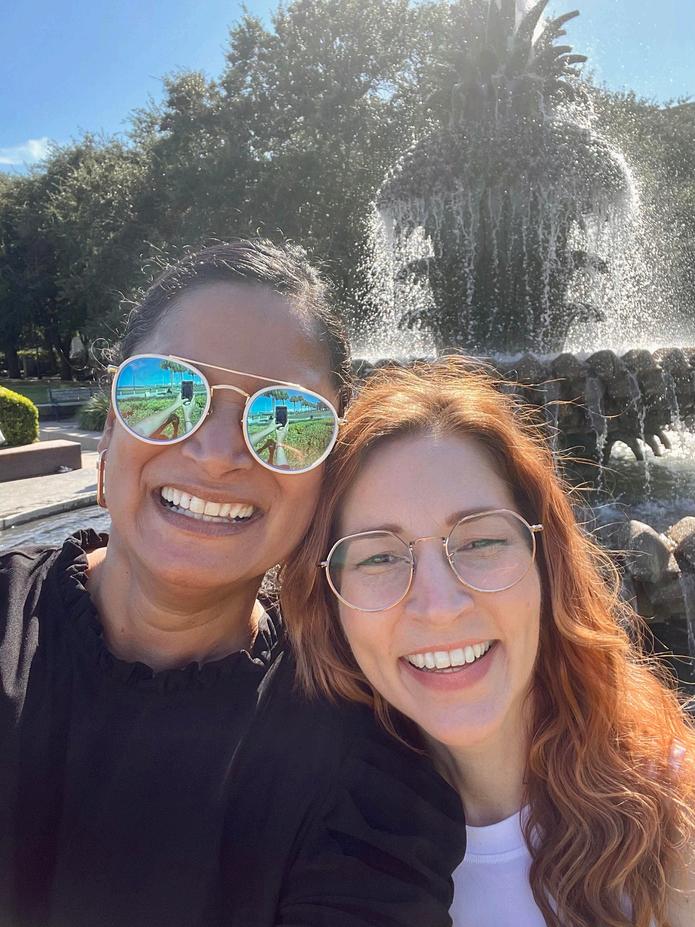
With the help of her cousin, who is a physician, Angela secured a dermatology appointment in Louisiana
“The dermatologist looked at it, promptly biopsied it, and told me, ‘It’s probably melanoma,’” Angela remembers. “I didn’t even know what that meant, but I knew it was serious ”
A few days later, shortly after Christmas in 2019, doctors confirmed that Angela did have melanoma
When she returned to her home in Maryland, she struggled to get into see a dermatologist As a healthy 42-year-old, she didn’t have a primary care doctor to refer her. Her cousin called around and found an oncologist at MedStar Georgetown University Hospital and Angela was able to get an appointment.
She had surgery and a lymph node biopsy and found out her cancer was Stage III. Her oncologist began discussing her options and mentioned the opportunity to participate in a clinical trial for an mRNA vaccine combined with immunotherapy.
“It was all really quick and sort of a whirlwind,” Angela remembers. “The experience of being presented clinical trial options is pretty overwhelming ”

As someone who works in the healthcare field, she knew that clinical trials aren’t always effective treatments. But Angela was eager to learn more, and her husband, who is a research psychologist and works in academia, was supportive. He reminded her that a clinical trial would mean she’d be followed closely and go through a detailed treatment process
“I’m the type of person who can process things if they are all laid out,” Angela said “That was the really helpful thing about the clinical trial: it was very detailed and process-oriented, which I do well with when I’m stressed ”
From 2020 to 2021, Angela underwent immunotherapy and received an injection of the mRNA vaccine every three weeks
Angela's advice to those considering a clinical trial:
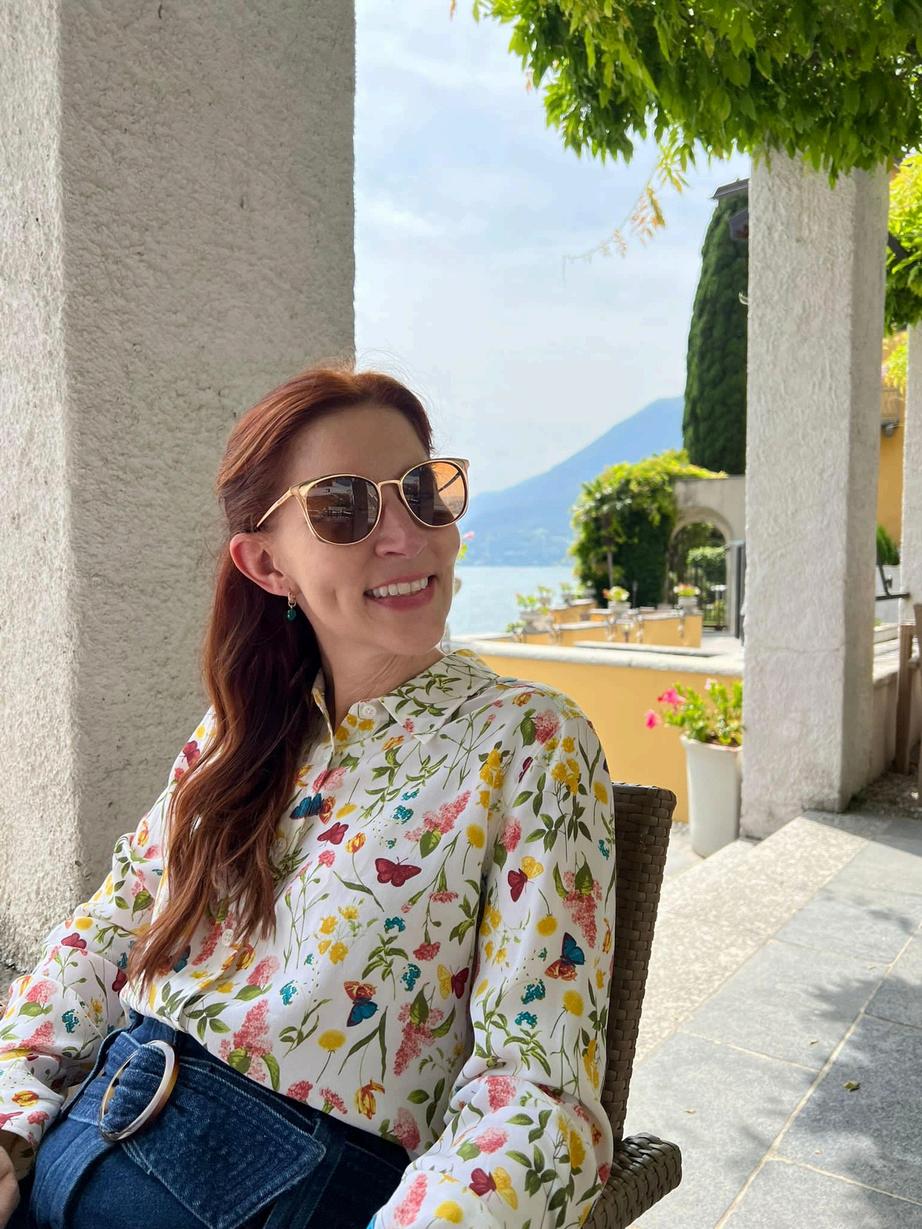
“Know your options, take your time in making a decision that feels right to you, and find a support system, including someone who can explain your treatment options to you during a time of extreme stress.”


She had to journal her side effects, which often included extreme fatigue and, occasionally, rashes on her arms.
The main burden of the trial, Angela said, was having to travel into Washington D.C. – typically a 30- to 40minute drive each way – every three weeks She couldn’t drive herself home so she frequently had to Uber into the city.
“The appointments were pretty much all-day affairs,” she said, adding that she was grateful to have a flexible work situation that allowed her that time and allowed her to work from home – something almost all her colleagues were doing at the time as well because of the pandemic.
That also felt isolating, Angela said In those first few months of the pandemic, she didn’t see her immediate family except through Facetime But she got into a regular schedule of checking in with friends and family
“I didn’t know many others who went through cancer,” she said She was only 44 at the time of her treatment and didn’t have many close people who personally understood the emotional toll of a cancer diagnosis and treatment. When she went to the cancer center at Georgetown, the other patients were typically over the age of 60
Still, she said she’s fortunate to have support from people who work in mental health fields, including her husband
“I had a lot of support around me,” she said. “I tell people that going through cancer treatment and having cancer was life-changing. I would say that I’m a different person in terms of my life perspective –it’s given me that understanding of the uncertainty of what life might hold, even if you’re a healthy 44year-old.”
Angela now focuses on taking each day as it comes, she said She’s grateful for her health and the chance to participate in a clinical trial, though she admits she still worries about recurrence

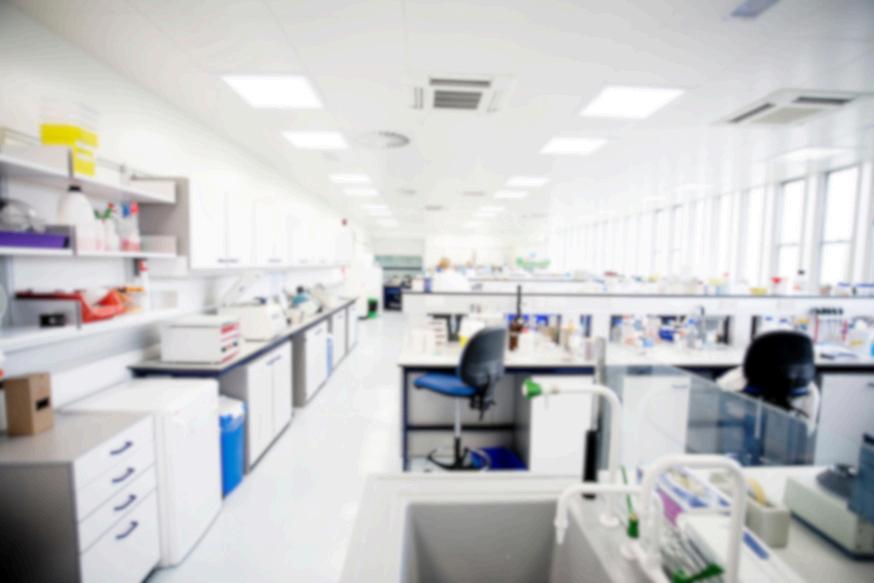


Melanoma brings not just medical battles but also emotional turmoil. The onslaught of information, the urgency of decisions, and the intensity of emotions can be overwhelming. A guiding hand through this storm can be invaluable, and that's where the power of mentorship makes a profound impact.
The path forward may look daunting, but no one has to walk it alone. There is strength in unity, comfort in conversation, and hope in shared narratives.

Requesting a mentor could be a pivotal step in your melanoma journey one that leads to a community of support, a wealth of shared knowledge, and a partnership that champions your fight every step of the way.
Elizabeth Rounseville hardly knew what melanoma was when she was diagnosed in 2018 after going to see a dermatologist for a mole that was bothering her The doctor immediately warned her that the spot on her leg didn’t look good and called a week later with the diagnosis He directed her to a surgeon, who discovered the cancer was in her lymph nodes
“It was crazy from then on,” said Elizabeth, now 43 and living in Massachusetts. “It’s been a long, long journey ”
In the years since that first diagnosis, one constant has remained: Elizabeth’s trust in her doctors and determination to undergo the treatments offered to her, which have included clinical trials

“I recommend trials to anybody. I didn’t want to die. I had to take the risk to see if the outcome would be worth it.”
In the years since that first diagnosis, one constant has remained: Elizabeth’s trust in her doctors and determination to undergo the treatments offered to her, which have included clinical trials.
She’s tried several combinations of immunotherapy as well as an intratumoral injection. While participating in one clinical trial for an anti-angiogenic therapy combined with immunotherapy, Elizabeth’s blood pressure spiked so high that she was admitted to the ICU. She also experienced intense migraines and blood clots in her lungs
Despite the side effects, she said she’s grateful for the treatments and credits the antiangiogenic therapy trial for shrinking her tumors

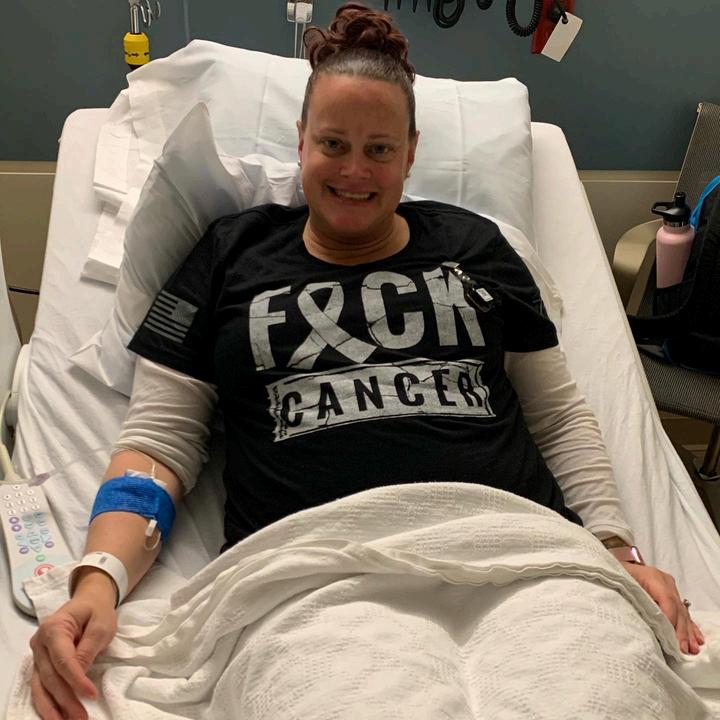
“I feel it almost killed me, but I think it was the bump I needed to get my melanoma headed in a better direction,” she said, adding that at one point after being in the ICU, her visiting nurses were ready to send her to hospice care. “Had I not done all these trials, I really don’t think I’d be here today ”
After a year and a half of clear scans, Elizabeth’s melanoma came back in December 2022 She’s now undergoing immunotherapy treatments every three weeks but is no longer part of a clinical trial

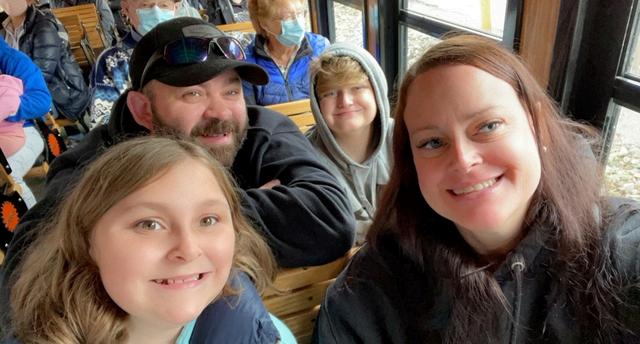
Signing the paperwork for the clinical trials was scary, Elizabeth said, but in addition to the faith she had in her medical team, she also knew she had the support of her family behind her She even credits her marriage to her melanoma journey – Elizabeth and her now husband started dating after she was diagnosed in the spring of 2018 He was her coworker at the time and offered to help out with driving and even laundry after her first surgery when she was having trouble walking.
By that fall, the two were dating. By February, they were engaged, and by May 2019 – a year after her diagnosis – they were married
“I don’t know what I would do without him and his family now,” Elizabeth said “They are my biggest support system, and they’ve been through it all with me.”
Her latest scans still show lingering cancer, which “has been really tough to swallow,” she said. “It was hard enough to have to go back into this after I got better,” she said “Now I’m thinking, ‘Oh my God, I have to do this even longer.’”
Still, Elizabeth said she’s determined to stay positive, especially for her family And she’ll continue to try new treatment options if her doctor recommends them.
“I think that my life is way too short, so I want to be doing more things with my kids,” she said. “These are the moments I want to spend with them because I can’t guarantee time a year or two from now. I can only guarantee the time now.”


Melanoma doesn't just affect the individuals diagnosed; it touches families, friends, and communities. If you're a melanoma survivor or someone passionate about supporting our cause, volunteering with AIM at Melanoma provides a meaningful way to contribute to our mission of eradicating this deadly disease.
We have many different avenues through which you can volunteer your time and energy. . Whether you're looking to lead a sun safety awareness project, support our research initiatives, or simply lend a helping hand at an event, every effort counts.
Are you ready to take AIM at melanoma? Reach out to us and discover how your volunteering can change lives, including your own. Together, we're a formidable force against melanoma.



